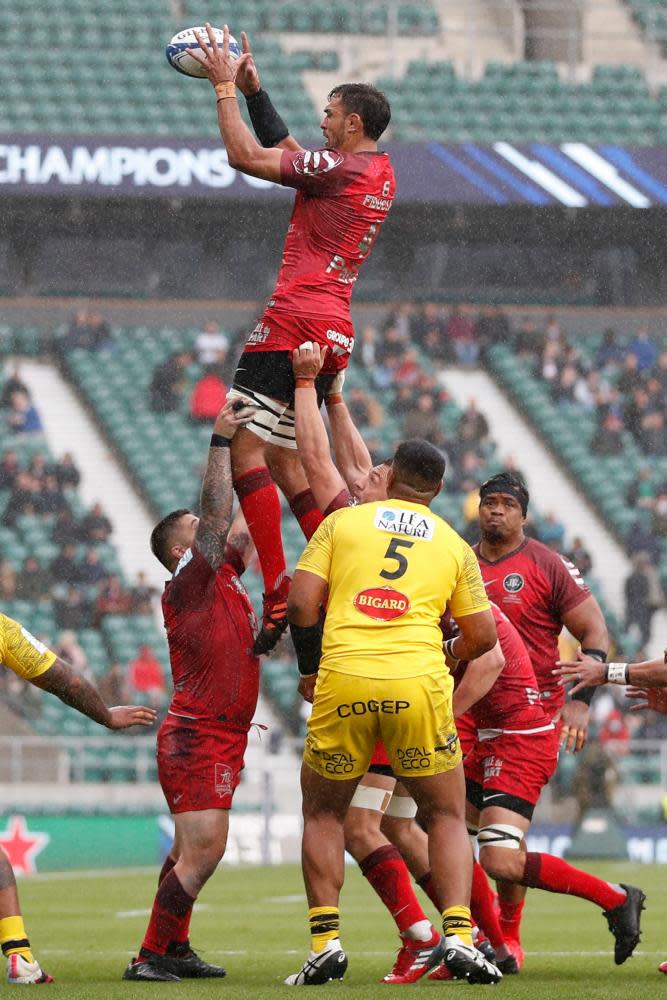Careful management required with Rugby Australia’s Giteau Law now effectively defunct

The selection of six overseas-based Australian players in the Wallabies’ Spring tour squad suggests the Giteau Law is about to become a dead letter. It is the highest representation of overseas-based players since the introduction of the rule in 2015, which was essentially designed to make inside back Matt Giteau eligible for the World Cup that year.
In fact, the overseas contingent was the same as the number of players supplied to the 37-man squad by the Melbourne Rebels, NSW Waratahs and Queensland Reds, and twice as many as the Western Force. Only the Brumbies (10) provided more players.
Related: Wallabies recalls handed to overseas-based trio for northern tour
Of the six overseas-based players in the squad, only five-eighth Quade Cooper (75 caps) qualified under the original Giteau Law, which allowed players with 60 Test caps to be eligible for the Wallabies.
The Giteau Law was subsequently amended to permit the selection of two players who did not meet the 60-cap threshold. But five players – Rory Arnold (22 caps), Samu Kerevi (36), Tolu Latu (15), Sean McMahon (26) and Will Skelton (18) – were given exemptions under the amendment to make the upcoming Spring tour.
Some restraint was shown with the omission of France-based utility back Kurtley Beale, possibly because of the plan to develop outside back Jordan Petaia as a fullback on tour.
Rugby Australia will clarify its position after the Spring tour and has indicated that some cap will remain, but it seems likely that the number of players required will determine the limit, particularly for the 2023 World Cup in France.
With the Wallabies’ ordinary results since the 2015 World Cup, RA had no choice but to head in this direction, something which the national governing body has strongly resisted previously.

After an unconvincing 2-1 series win against a second-string France side in the winter, the Wallabies were thrashed 3-0 by the All Blacks in the Bledisloe Cup. Then, with Cooper, Kerevi and McMahon recalled from Japan, the Wallabies won four Tests in a row for the first time since 2017, upsetting the world champion Springboks twice and defeating Argentina twice in the Rugby Championship.
The influence of Cooper and Kerevi, in particular, was profound, highlighting the need for the Wallabies to select Australia’s best players no matter where they played club or provincial rugby.
The Wallabies’ success in the Rugby Championship made it more palatable to bring in the likes of France-based Arnold, Skelton and Latu for the British leg of the Spring tour. World-class second-rowers, Arnold and Skelton have the potential to transform the team’s forward play in the same way Cooper and Kerevi improved their back play, while Latu would add much-needed depth to the hooking position.
The availability of all required overseas-based players would certainly make the Wallabies a competitive force in world rugby again, but RA must manage the process carefully. In the past the nation’s Super Rugby franchises opposed the loosening of the Giteau Law because they feared it would exacerbate the exodus of players to rich overseas clubs in Europe and Japan.
You could argue that the Socceroos have no restrictions on selecting overseas-based players and there is still enough local talent in Australia to support the domestic A-League Men. But comparing Australian rugby and football is like comparing oval balls with round balls. With the exception of Wellington Phoenix, the A-League Men is an Australia-only competition, but Australia’s Super Rugby teams compete against five New Zealand sides, among the best regional outfits in the world.
Australia’s Super Rugby teams have struggled to beat the Kiwis over the last seven years and a continuation of the player drain overseas would widen the trans-Tasman gap further, eroding support for the provincial game here. So it is understandable RA and the club franchises would want to maintain some vestige of the Giteau Law to try to deter players from leaving.
Related: Wallabies learned to fight on home turf but can they win battle of the north? | Bret Harris
But the bottom line in Australian rugby is that the Wallabies are the main money-makers. If the men in gold are unsuccessful, the whole game suffers, including the Super Rugby franchises, which derive 30% to 40% of their income from annual RA grants.
RA must find the right balance between making the Wallabies strong again and keeping sufficient talent in Australia to ensure the Super Rugby sides can compete with the New Zealanders. That is much easier said than done.
Since its inception the Giteau Law has been tweaked a few times and this practice is likely to continue in the lead up to the World Cup. It has to be sufficiently flexible to ensure required overseas-based players are eligible for selection, while at the same time RA and the Super Rugby franchises must work harder to keep marquee players in the country.
The rule is unlikely to be repealed, but it is almost certain for all intents and purposes to become defunct in practice.

 Yahoo Sport
Yahoo Sport 





































